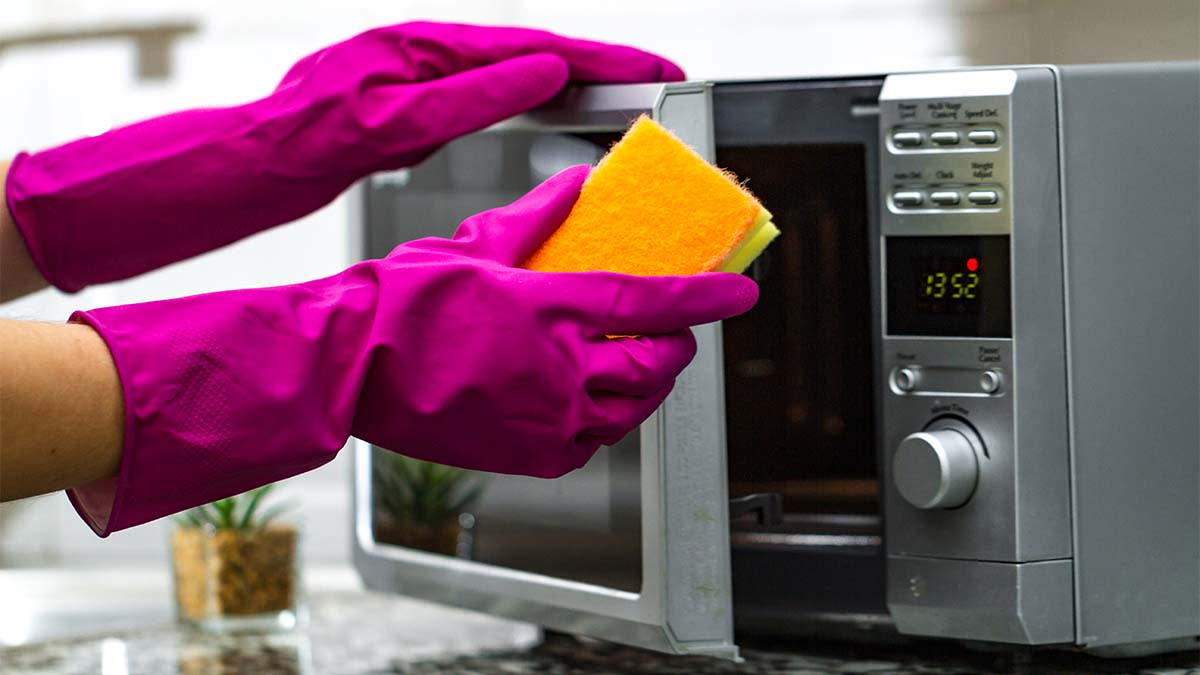Spring Cleaning? Don't Neglect These 4 Germ Magnets Around Your Home

With spring in full swing, you're likely in the process of deep cleaning your home. You probably focus on grime-filled areas like the stove or bathtub, but other germ magnets are still lurking in each room. Objects such as your kitchen sponge and keyboard harbor illness-causing germs and bacteria. Yikes! The good news: Cleaning pros say that sanitizing these items and other sneaky germ hot spots is simple. Using clever cleaning tricks, you'll avoid harmful bacteria from spreading — and decreasing your chances of getting sick. Here are four tips demonstrating how to kill germs at home with ease.
To Lift Keyboard Crud: Hand Sanitizer
A 2018 study suggests that computer keyboards are contaminated with bacteria. Luckily, the solution is likely in your purse: “Grab a bottle of hand sanitizer, dab a small amount of it on a cloth, and gently wipe the keyboard once a week,” advises cleaning expert Kathy Turley of Home Clean Heroes. The alcohol in the sanitizer kills more than 99 percent of germs and evaporates quickly, preventing damage to the delicate electronics.
To Remove Sponge Gunk: Your Microwave
Kitchen sponges are among the germiest items in our homes, per a study by the National Sanitation Foundation. The fix: Dampen your sponge with a bit of water and pop it in the microwave for a minute or two. A 2007 study at the Agricultural Research Service found that heating a kitchen sponge for one minute in the microwave killed a significant amount of bacteria.
To Keep Remotes Grime-Free: Plastic Wrap
It turns out your TV remote is dirtier than you think. Research from the University of Virginia suggests that viruses could hang out on remotes for two days or longer, especially if used by those with cold symptoms. To the rescue: Just cover your remotes in a single layer of plastic wrap, and replace every two to three days. Or consider picking up a packet of 100 plastic remote covers (Buy from Amazon, $16.95).
To Sanitize Your Kitchen Sink: Baking Soda
A 2017 study found harmful bacteria, including E. coli, in large number of participants' sinks. To kill it, sprinkle baking soda on the sink, then wipe it with a damp sponge and dish soap. Baking soda’s grittiness not only scrubs off bacteria-forming food bits, it also creates an alkaline environment that neutralizes disease-causing germs.
A version of this article originally appeared in our print magazine, Woman's World.
Woman's World aims to feature only the best products and services. We update when possible, but deals expire and prices can change. If you buy something via one of our links, we may earn a commission.
Questions? Reach us at shop@womansworld.com.

